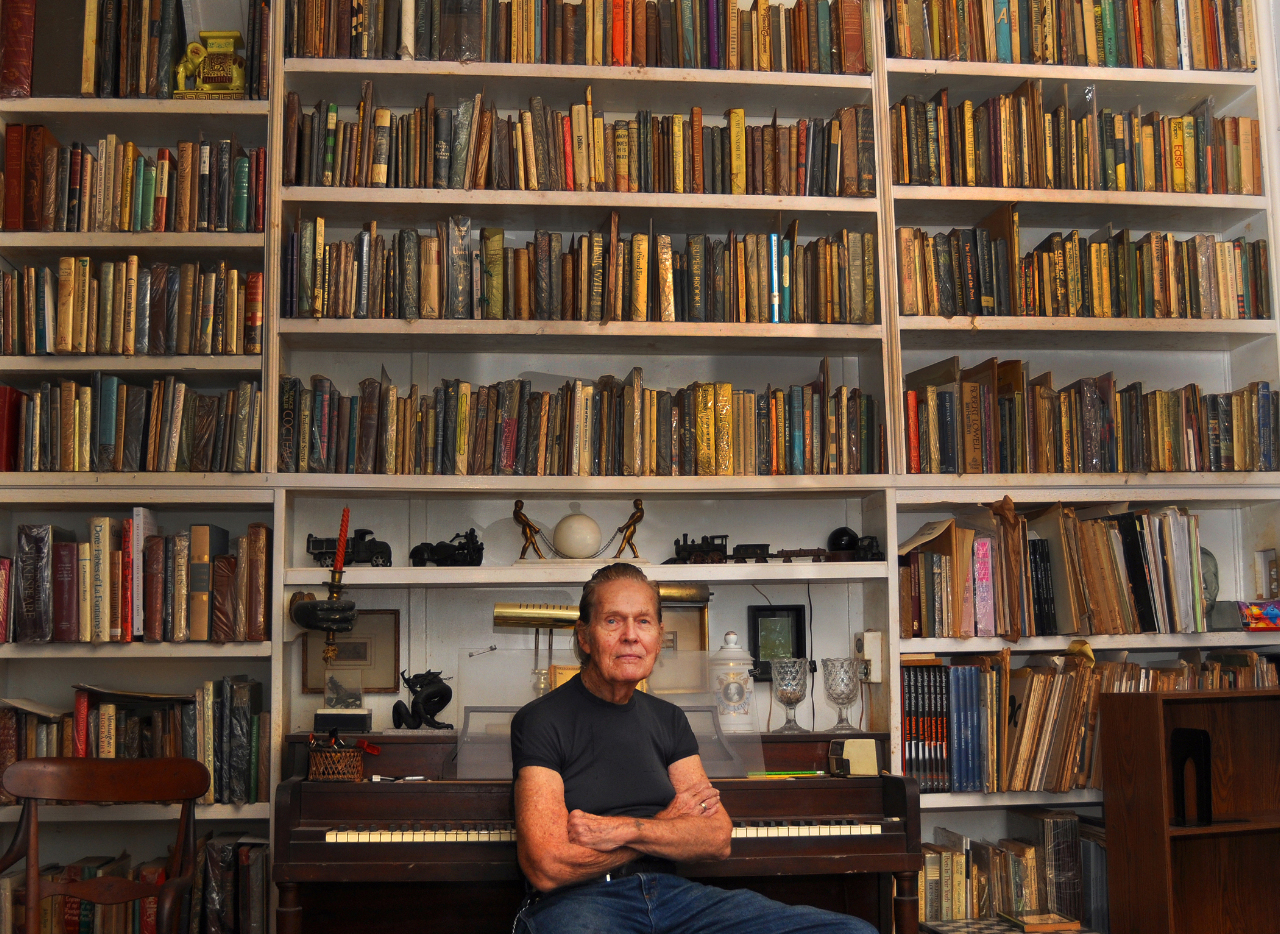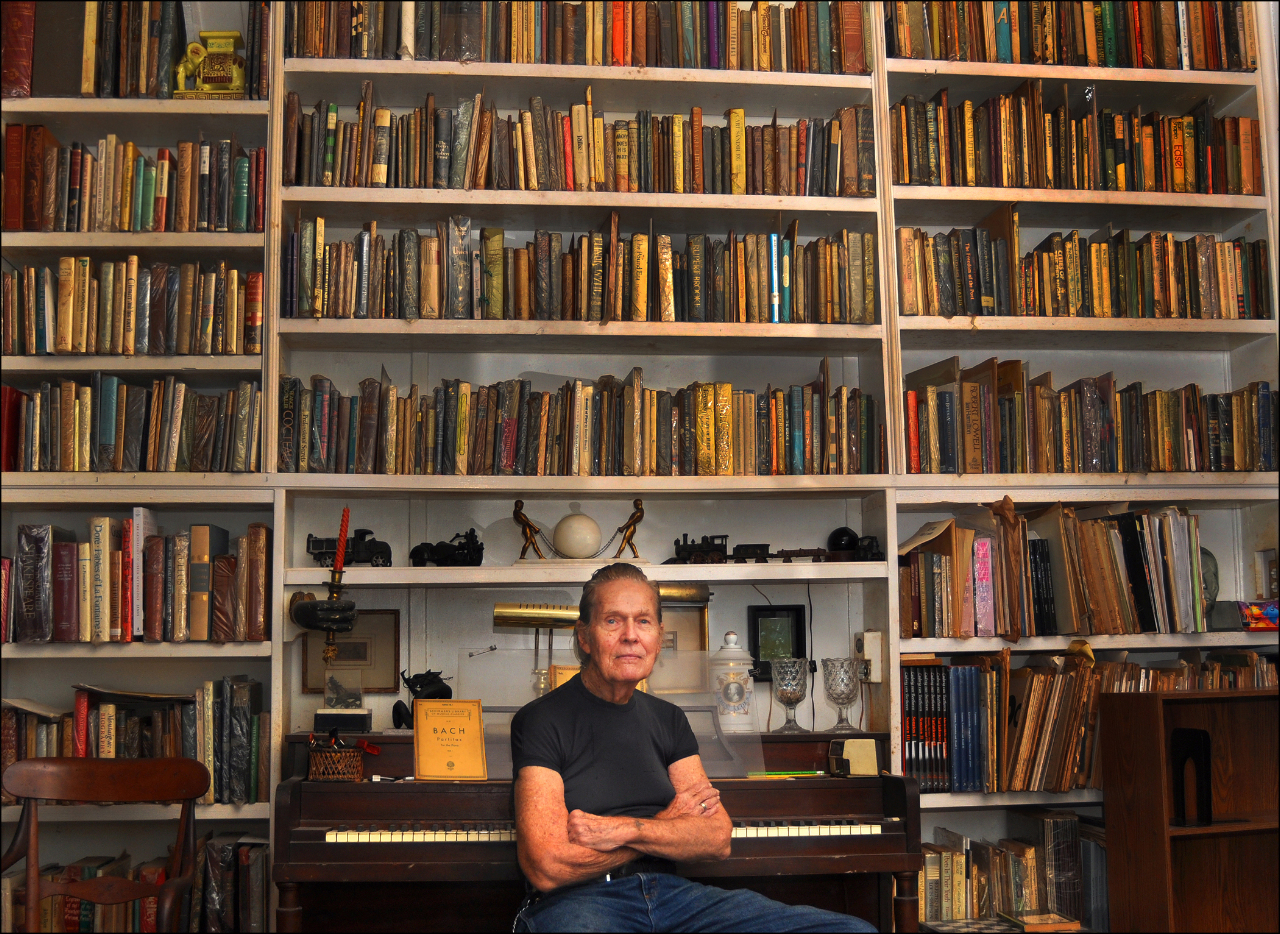Asphalt and Ambrosia

by Kirby Congdon…….
In an essay, “A Few Questions for Poetry,” printed in The New York Times Book Review for the 1st of January, 2017, Daniel Halpern of Ecco Press tries to provide an answer to his headline. The phenomenon of poetry is a tradition that is useful, like a vitamin pill that is good for you. The poet W.S. Merlin is quoted as saying that poetry “addresses individuals.” Mr. Halpern suggests that in the “owners’ hands” there is a sense of sanctity within the “experience that’s unutterable” and “maybe that’s the strongest evidence that poetry’s doing its job; it’s creating an essential need and then satisfying it.”
That formula is descriptive but not persuasive. A secondary concern is that poetry insures “that language for our future generations remains intact.” I almost accepted this remark since I have scolded poets when they are lax by asking, “If the poets don’t care about the details of poetry, then who will?”
Mr. Halpern’s research finishes with a quotation from Wallae Stevens. The poet’s function was “to help people live their lives. … The imagination is man’s power over nature.”
All these assertions, apparently, are an attempt to provide poetry with a purpose. These references emphasize the final results of having read a finished poem. Providing a purpose, like saving the language for accurate communication, addressing the individual, creating an unutterable experience, doing a job, satisfying a need, are all secondary funcitons and are hardly a definition of the phenomenon. In the process of writing a poem, the poet does not create a placebo in order to teach, to be wise, to be reflective or clever. The poem is not for the writer of it to enlighten us with printed matter. It is to relieve the poet himself, to let him find out who he is himself. He does not need to dictate how to live, think or feel. If the poem is finished, it is no longer under the poet’s jurisdiction. He is not concerned with how it survives or why. The poem achieves its own life, lets go of the poet’s control, and becomes public property rather than being a prize, a reward or a proof of the poet’s ability to write it. The poet does not exist in the creation of it any more. The poem exists for itself. The poet’s dedication, his name, his distribution, or other acknowledgements, are not pertinent to the process of writing the poem. The poet is no longer in control of finished work. A work of art has its own life independent of its maker. It has no purpose except to be, like any creation, simply itself.
If an artist is responsible for giving birth to something outside of himself, that is its own reward, rather than fame, income or reputation. If these latter items matter to him as reward or purpose, he is working without pay for Hallmark greeting cards and he deceives through insinerity. A poem is not manufactured. It is discovered. Th poet does not plan the poem’s contents. It is the poem itself that reveals what it wants to say.
Mr. Halpern is asking, for the literary public, how does a poem come about when it is not a question for the literary public to ponder. It is a question for a neurologist, if that is where we want to go. We do not know what needs to be said in the process of writing a poem. The poem tells us and we translate that into the English language, but not into instruction, or interpretation or into a moral lesson, but into the language of the poem.
I am thinking of Eric Greinke (Presa Press) and his rendering (into English) of Arthur Rimbaud’s The Drunken Boat. Mr. Greinke does not explicate that poem or even translate it. He lets himself feel an adolescent’s absorption in an ordinary subject that the poem drugs him with. I do nto need to “understand” Greinke’s version, or even Rimbaud’s. The poem lets me feel it. My own version, let me say, is that I am on a raft, or clinging to some flotsam or jetsom, racing down the gutter of experience over ancient bricks, guided by the stone curbing and, I suppose, in America, the neat grammar and vocabulary of the macadam or asphalt of the road that parallels my trip, for it is a trip. We experience but do not explain the mind of Arthur Rimbaud who, incidentally, is not a teacher giving us information. He is a poet. We are not taking a pill prescribed by a doctor. We are, instead, living, however it is done, in between the asphalt and the rare aphrodesia of a poet.


